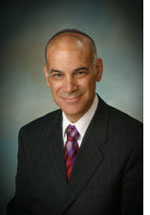By Rabbi Leonard Rosenthal

SAN DIEGO — In parashat Eikev, Moses succinctly summarizes God’s demands of us: “And now, O Israel, what does the Lord your God demand of you? Only this: to revere the Lord your God, to walk only in His paths, to love Him, and to serve the Lord your God with all your heart and soul, keeping the Lord’s commandments and laws, which I enjoin upon you today, for your good.” (Deut. 10:12-13)
The Sfat Emet wrote: “Even though Moses went on to enumerate many values and good deeds, nevertheless, the central point he was making was that the Israelites should revere (Heb: yirah) God. It is only through yirah that they will come to mitzvot, good deeds, ethics, and values.
“Furthermore, it is from this verse of the Torah that our sages taught that everything is in hands of heaven except yirah of heaven. This means that yirah comes before anything else.”
Even though the Jewish Publication Society translates yirah as “revere,” that does not reflect the full meaning of the word. Yirah means to “fear,” as well as revere. It also means to stand in awe and wonder. When we approach God we feel a combination of these emotions. We tremble at the thought of God’s greatness, but stand in awe of it at the same time. These emotions are similar to how we feel when approaching our parents: a combination of fear, respect, awe, and love.
In trying to explain the notion that everything is in the hands of heaven except the yirah of heaven, the Sfat Emet was trying to make sense of an age-old conundrum: the conflict between an all-knowing, all-seeing, and all-powerful God, and human free will. If God knows and sees everything, then free will is a myth (everything we do is already decided). However, if human beings have free will, then God is not all-knowing, not all-seeing, and/or not all-powerful.
Through his interpretation of the Talmudic teaching, the Sfat Emet dodges the question instead of answering it. The Talmud does not deal with the question of free will versus determinism, but rather with the question of how one comes to know God. God is everywhere, he says, but humans are often blind to the Divine Presence.
How does one come to see God’s hand in the universe? By always keeping yirat shamayim, reverence for heaven, in mind. If one lives every minute of every day acutely aware of God’s Presence, then one will find God’s Presence in everything one does, no matter where they may be.
If a person has yirat shamayim, they see the ocean not as a body of water, but as a primordial source of God’s creation. They see a rainbow not as refracted light, but as a symbol of God’s covenant with Noah and his descendants. A baby is no longer only a young child, but the proof of God’s promise of renewed Creation.
It takes effort to live one’s life with yirat shamayim, and it is fair to say that we often will shunt it far aside. When we do strive to live with yirat shamayim, we become not only more appreciative of God’s wonders, but of God’s goodness to us.
*
Rabbi Rosenthal is spiritual leader of Tifereth Israel Synagogue in San Diego. He may be contacted via leonard.rosenthal@sdjewishworld.com . Comments intended for publication in the space below MUST be accompanied by the letter writer’s first and last name and by his/ her city and state of residence (city and country for those outside the United States.)